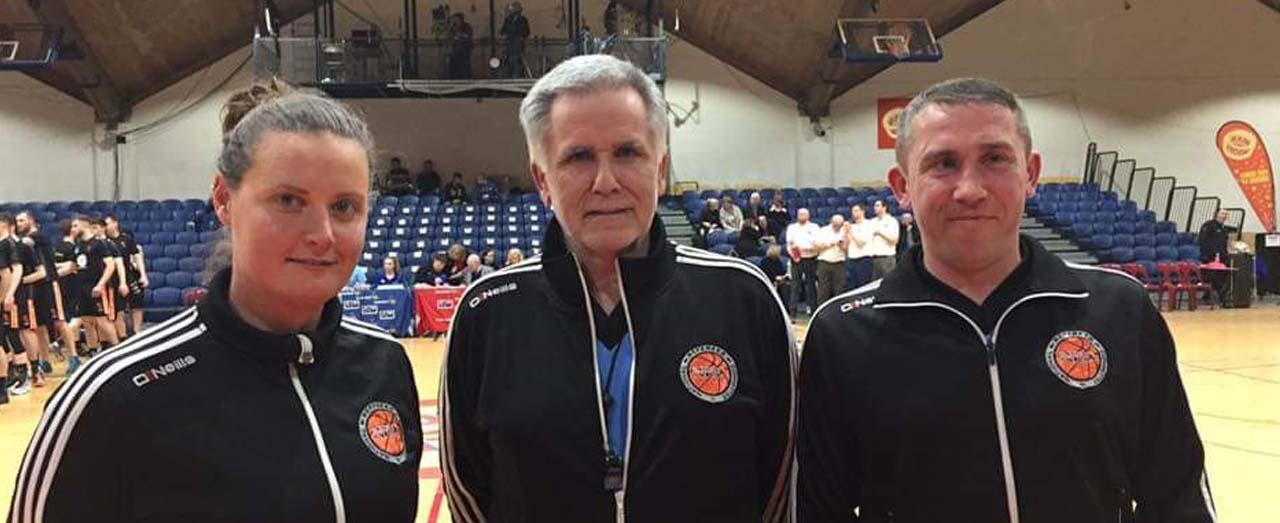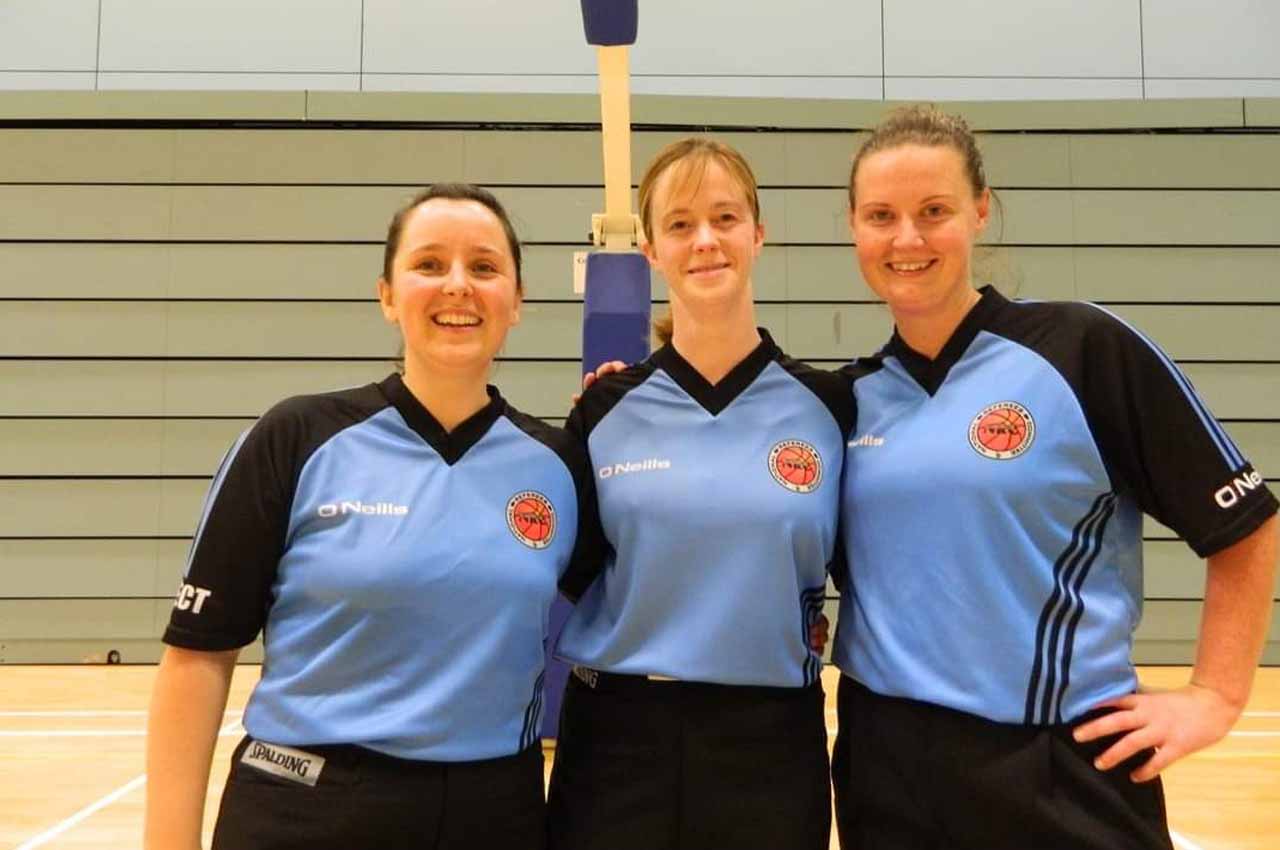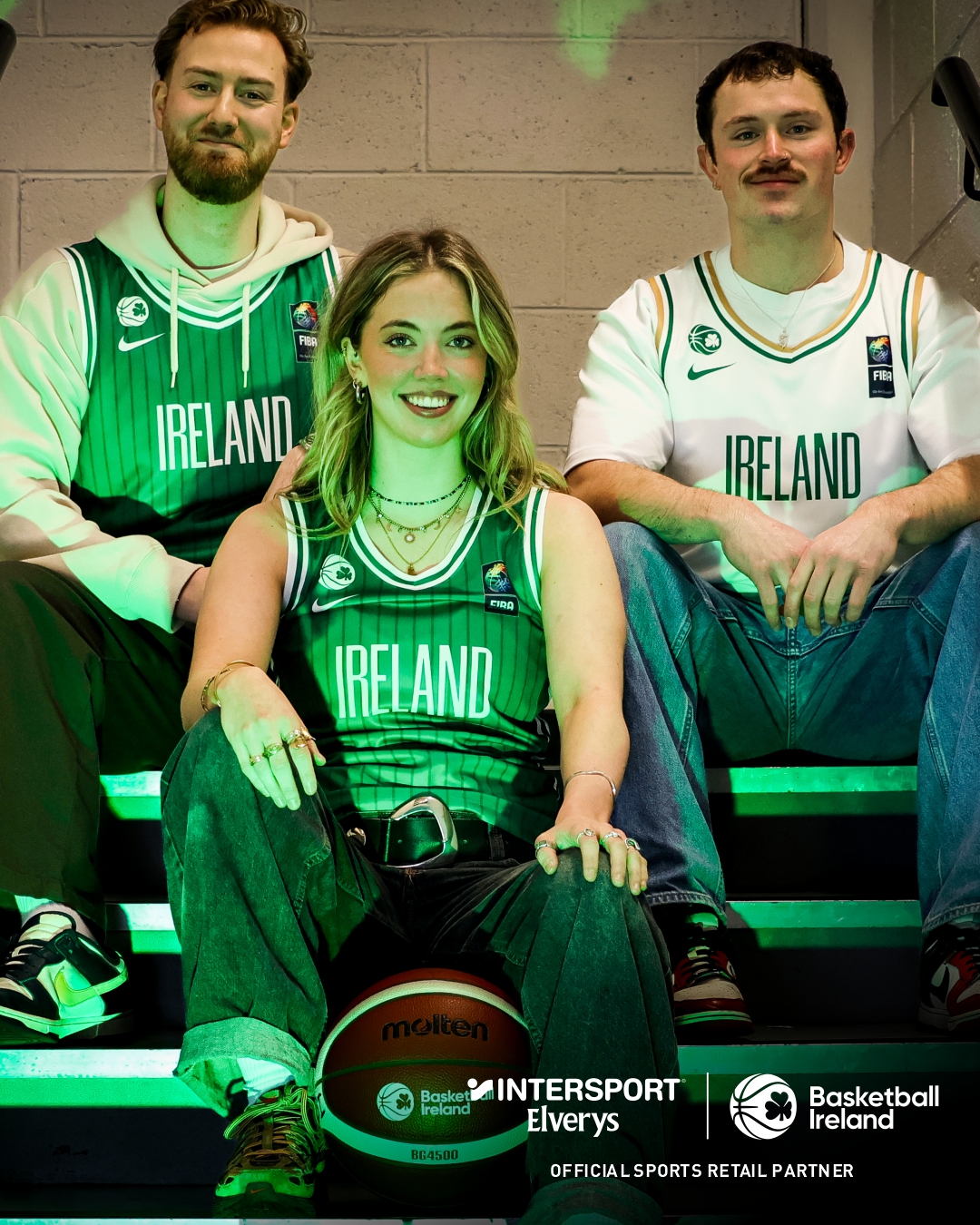Louise O'Toole

Referee Level: Local, National League
Interview
"If everyone is working towards the same goal the game will be successful. It’s not us against them. Coaches, players and officials are all striving for the same thing - a fair and entertaining game."
Can you talk us through your playing background?
I played basketball at school and club level until I was 19. When I started college, I got an evening job and didn't continue my playing career. I regret "retiring" so young. During my school days I had many days out in the National Basketball Arena and we travelled to Parochial Hall most Thursday evenings for Cork league matches. I spent every evening in the Mercy Gym, training or coaching - basketball was my life.
How did you get involved in refereeing?
I helped at the junior club training on Saturday mornings. During these sessions we would coach and referee the games (we got paid in chicken fillet rolls!). I really enjoyed it and in Transition Year I started refereeing underage games on the weekends. This is when my interest in the rules and understanding of the game grew.
What kind of games have you refereed over the years?
Believe it or not, the best game I ever refereed was an U13 Cork League game Wildcats v Brunell. An absolute cracker! Underage rules make the game so interesting. I love to see how coaches react to these adaptations and in this particular game, there were very experienced coaches and some fantastic players. Not to go without mentioning my co official George Fitzgerald - a Special Olympics athlete and up and coming referee.
I have refereed at cup semi-finals and finals weekend and schools’ finals in the National Basketball Arena. I have travelled to Sweden and Wales to referee which was great for my development. I have also refereed Special Olympics and wheelchair basketball games - something I need to do more of!
Who would you say was a role model for you as a referee and why?
There are a few people who have helped me in my refereeing career. In the early days, Pascal Roche was a fantastic role model for me, he gave me tips I still think about before refereeing a game now. Martin Hehir, another excellent referee from the South East who advised me on making the step to National League level. Another man, also from the South East who I have had the pleasure of refereeing many games with is Canice Kelly. Cool and calm and his attitude towards the game and players is something I admire. Because we are in the year of 20x20 I cannot complete this question without mentioning a woman who inspired me and unfortunately I did not get the opportunity to referee with, Cathy Molloy, but as a teenager I admired her presence on the court.
What is the most important thing for you when refereeing younger/teenage boys and girls?
Communication. Preventative officiating. It's important for kids/ teenagers to engage with referees and understand what the referees are looking at and for when officiating. Respect goes both ways and the earlier we can build this positive relationship the better.
Have you any tips you'd like to share on keeping girls engaged in sport - particularly at the 14-18-year-old age group?
Some of my best friends have come from my involvement in sport, my career has come from my involvement in sport and my physical and mental wellbeing can be attributed to my involvement in sport. It's not about being the best, it's about being involved.
Any tips you would like to give to young referees who are starting out?
Ask questions! Ask an experienced referee for advice.
When you first stepped up to National League/International level, were you nervous about the step up and how did you deal with that if so?
After lots of contemplation, I decided to go to the referee’s conference. It was daunting because everyone knew each other- or someone. It's not easy being the new person. Mary Phelan, an excellent referee and very kind person welcomed me with open arms. Once I got my feet under the table, I got to know everyone and they welcomed me on board.
What would you say to other female referees who are considering moving up a level in their refereeing careers?
Go for it. Be willing to learn and don't give up when you make your first bad call. Nobody referees the perfect game.
How do you measure the success of a game?
If everyone is working towards the same goal the game will be successful. It’s not us against them. Coaches, players and officials are all striving for the same thing - a fair and entertaining game.

How do you measure success in broader terms?
Work hard at the things you love and be proud of your achievements.
How important do you think it is for referees to keep learning and developing regardless of level of experience?
Vital. The game is ever changing - nobody knows it all.
Have you noticed many changes in Ireland in referees over the years? If so, what?
Since I have started refereeing at national league level, I have seen a greater emphasis on fitness and development.
What changes would you like to see in basketball refereeing in Ireland in the future?
A clearer advancement process through the grades.
What is the most valuable lesson you have learned as a player?
The value of losing.
What is the most valuable lesson you have learned as a referee?
Fitness is key. If you’re in the right position to see what you need to see, there’s a much greater chance of getting the call right. Refereeing is not a guessing game.
If you know referee who deserves to be recognised in this series, please send their details to Jenny at jkelly@basketballireland.ie
Basketball Ireland have a homepage for your refereeing education and development requirements. This page contains all relevant FIBA documents along with training videos and additional material supplied by Basketball Ireland FIBA National Instructor, Paul Dempsey to aid your development/education. Click here to view the page.

